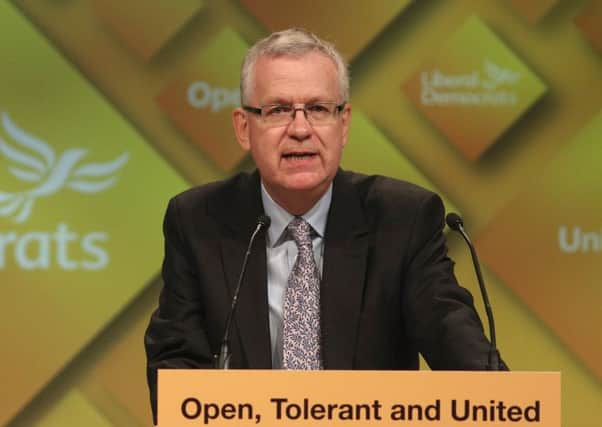Reform the Lords to boost Northern representation, claims leading peer


Lord Newby, who leads the 100-strong Lib Dem group in the second chamber, warns the current system has allowed peers from London and the South-East to dominate proceedings.
However, he argues the creation of an elected House of Lords would not only improve the chamber’s legitimacy, but also give regions outside the capital a bigger voice.
Advertisement
Hide AdAdvertisement
Hide Ad“If we are going to redress the imbalance between South and North in the country then we’ve got to redress the political imbalance,” he told the. Yorkshire Post
“At the moment London and the South East is very heavily over-represented in the Lords... and whilst London has a very effective lobby, Yorkshire and the other northern regions don’t.
“And because members of the Lords have no democratic legitimacy, our voice is easily ignored by the Government.
“But if we could elect a block of peers representing Yorkshire and the Humber say, they would come with a mandate to promote the interests of the region in a way that noone else in Parliament currently has.”
Advertisement
Hide AdAdvertisement
Hide AdThe future of the House of Lords has come under renewed scrutiny in recent months, after David Cameron was accused of “stuffing” the chamber with dozens of new Tory peers.
The prospect of a Parliamentary vote on Article 50 has also sparked fresh debate about its powers, given a series of successful attempts to block or overturn Government legislation in 2015.
It was recently announced the the Government had dropped plans to curb the chamber’s influence – although peers were warned to exercise “discipline and self regulation”.
In an apparent response to this, a recent debate in the House of Lords saw members back proposals calling for a reduction in its size.
Advertisement
Hide AdAdvertisement
Hide AdLord Newby denied this was a rare case of “turkeys voting for Christmas”, stating that all it proved was that “everybody recognises that there are too many turkeys”.
“The culling method was not agreed... [But] there are very easy ways of doing it,” he said.
He pointed to suggestions set out by fellow Lib Dem peer David Steel to introduce a retirement age and a minimum attendance condition.
He estimates that this has the potential to cut numbers from almost 800 “to around 600”.
Advertisement
Hide AdAdvertisement
Hide AdThe Lib Dems preferred model is for a fully-elected second chamber of around 450 members.
It is likely that around 80 per cent of these would be elected, with numbers allocated to regions based on population size.
Lord Newby accepts that this would mean the relationship between the Commons and the Lords would undergo significant change.
But he dismissed claims that it would “necessarily” be a bad thing, as long as the powers of each were clearly defined.
Advertisement
Hide AdAdvertisement
Hide AdHe also dismissed arguments that reform would result in a loss of expertise built up from decades of service in industry or public life.
He told the paper: “You get a build up of knowledge, but you also get an ossification of knowledge.
“We have people here in their 80s and 90s who whenever they give an example of how things might be done talk about practice 30 years earlier.
“They are not necessarily up with the game.”